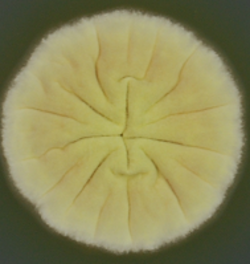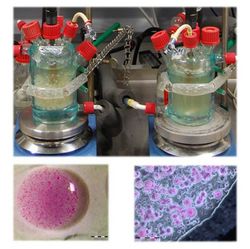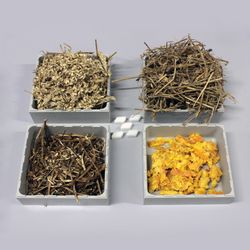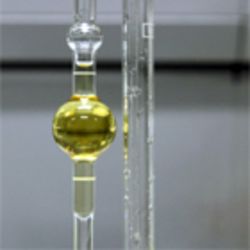Biomass digestion
For the production of many bio-based chemicals, the sugars that constitute biomass are essential. The biomass digestion is the first conversion step and provides free sugars for the subsequent processes. We analyze, develop and evaluate methods and processes for the efficient digestion of biomass.
The sugars and sugar building blocks that build up the carbohydrates of biomass are essential intermediates for many bioraffinery processes. Though, carbohydrates originating from food such as starch from corn or sucrose from sugar beets can be relatively easy used for these purposes, these raw materials are also used for food production and can therefore only be not be used in biorefineries without limitation. Alternative sources of sugars are cellulose and hemicellulose, the main constituents of plant biomass, especially of agricultural wastes such as straw, chaff or sugar beet pulp. Cellulose and Hemicellulose usually occur in complex and recalcitrant composite structures. For an efficient use of raw materials, it is necessary to convert the bound sugars into a easily processable form. Physical, chemical and biotechnological methods and combinations of methods are used for this saccharification process.
We investigate, develop and evaluate these processes to obtain free sugars from agricultural raw materials and residues. This basic first conversion steps is crucial for the overall efficiency of biorefineries. Our special attention is paid to the specific requirements of raw materials and the subsequent processes. Our goal is to optimize the digestion of agricultural residues by new methods and combinations of methods and to obtain the underlying sugars in industrially utilizable concentration and purity.

![[Translate to English:] [Translate to English:]](/media/_processed_/3/6/csm_Hintergrund-Ausschnitt1_9daaef6b89.jpeg)
![[Translate to English:] [Translate to English:]](/media/_processed_/3/6/csm_Hintergrund-Ausschnitt1_0bd7111163.jpeg)






















